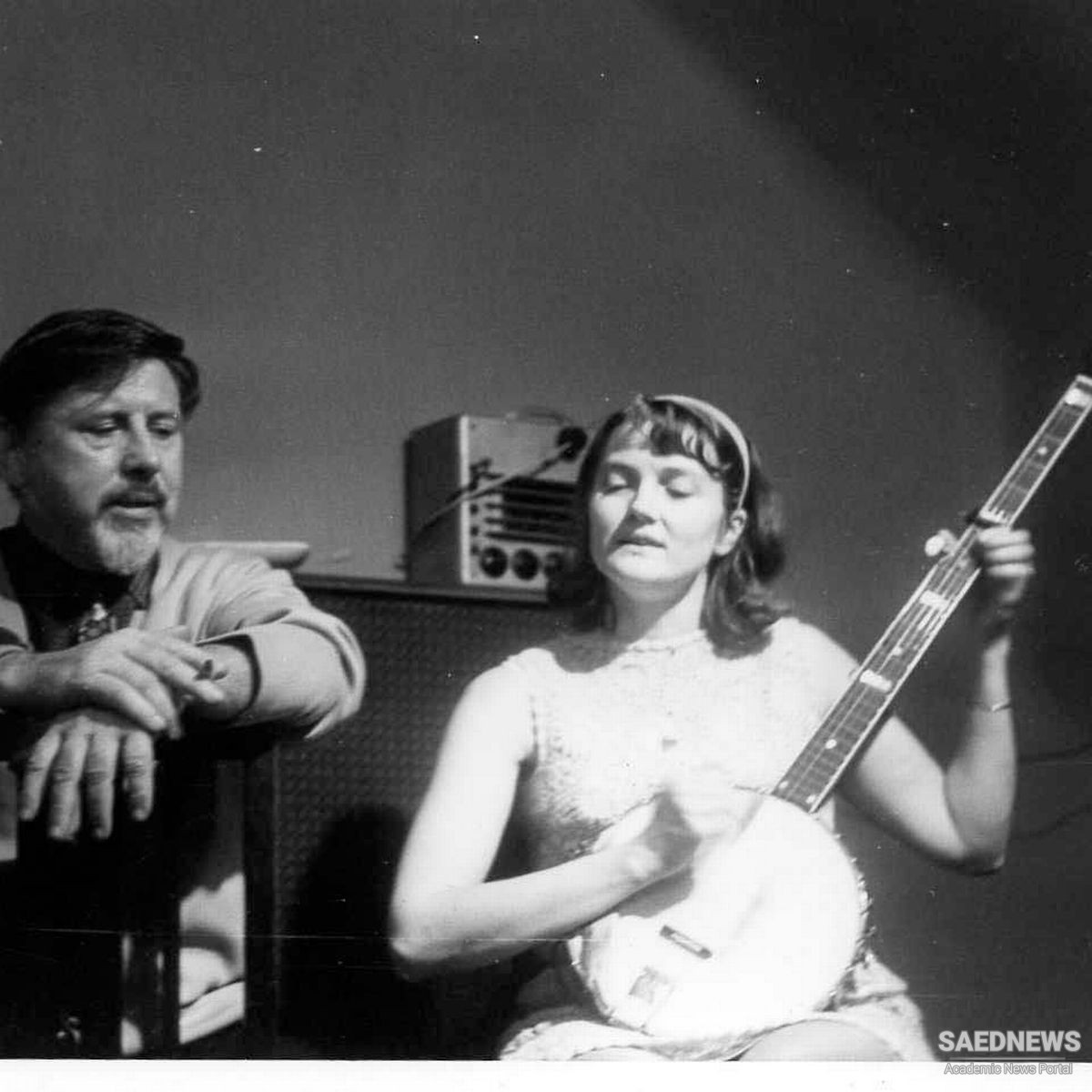He wrote for factory newspapers and composed satirical songs before devoting his life to radical politics and theater. He married Joan Littlewood, a young actress, and they formed the Theatre of Action in Manchester, the first of a series of labor theaters into the early 1950s, although he had by now become divorced and married the dancer Jean Newlove. He had also switched to performing and promoting folk music, and in 1953 founded the Ballads and Blues Club (later the Singers Club) in London with Alan Lomax, A. L. Lloyd, and Seamus Ennis.
From the 1930s he had worked as an actor, narrator, writer, and producer on BBC radio, having been involved with various experimental programs. In 1956 he met Peggy Seeger and they collaborated on a series of musical documentaries, known as the Radio-Ballads, for BBC, for example Song of a Road on highway building, Singing the Fishing on the herring industry, and The Big Hewer on coal miners.
Peggy Seeger, born in 1935, was the daughter of musicologist Charles Seeger and composer Ruth Crawford Seeger, the sister of Mike Seeger, and the half-sister of Pete Seeger. A gifted musician on the piano, guitar, and banjo, with a rich folk music background, she first met MacColl on a trip to England in 1956, and they began living together in 1959. Peggy began recording folk albums in the 1950s, which she would continue into the next century. They had been part of a skiffle group, the Ramblers, along with Lomax, and in the 1960s began a series of albums together, including The Long Harvest (ten volumes), and Blood and Roses (five volumes), as well as recording numerous albums separately. They also kept up an active performing schedule, and composed many songs; MacColl’s most popular, “The First Time I Ever Saw Your Face,” written for Peggy, was a hit by Roberta Flack in 1971. The Peggy Seeger Songbook: Warts and All: Forty Years of Songmaking was published in 1998, and The Essential Ewan MacColl Songbook: Sixty Years of Songmaking three years later in 2001. They also recorded numerous traditional singers in Great Britain and published their songs in Travellers’ Songs of England and Scotland and Doomsday.
MacColl died in 1989, and his Journeymen: An Autobiography was published the next year. Following Ewan’s death, Peggy divided her time between living in the United States and England, and continued her busy performance schedule. MacColl and Seeger long combined their musical and political lives, creating a potent mix that has had great influence, although not without controversy. They also demonstrated the strong connections between folk music in Great Britain and the United States.


 The Fifties: Great Britain
The Fifties: Great Britain














































